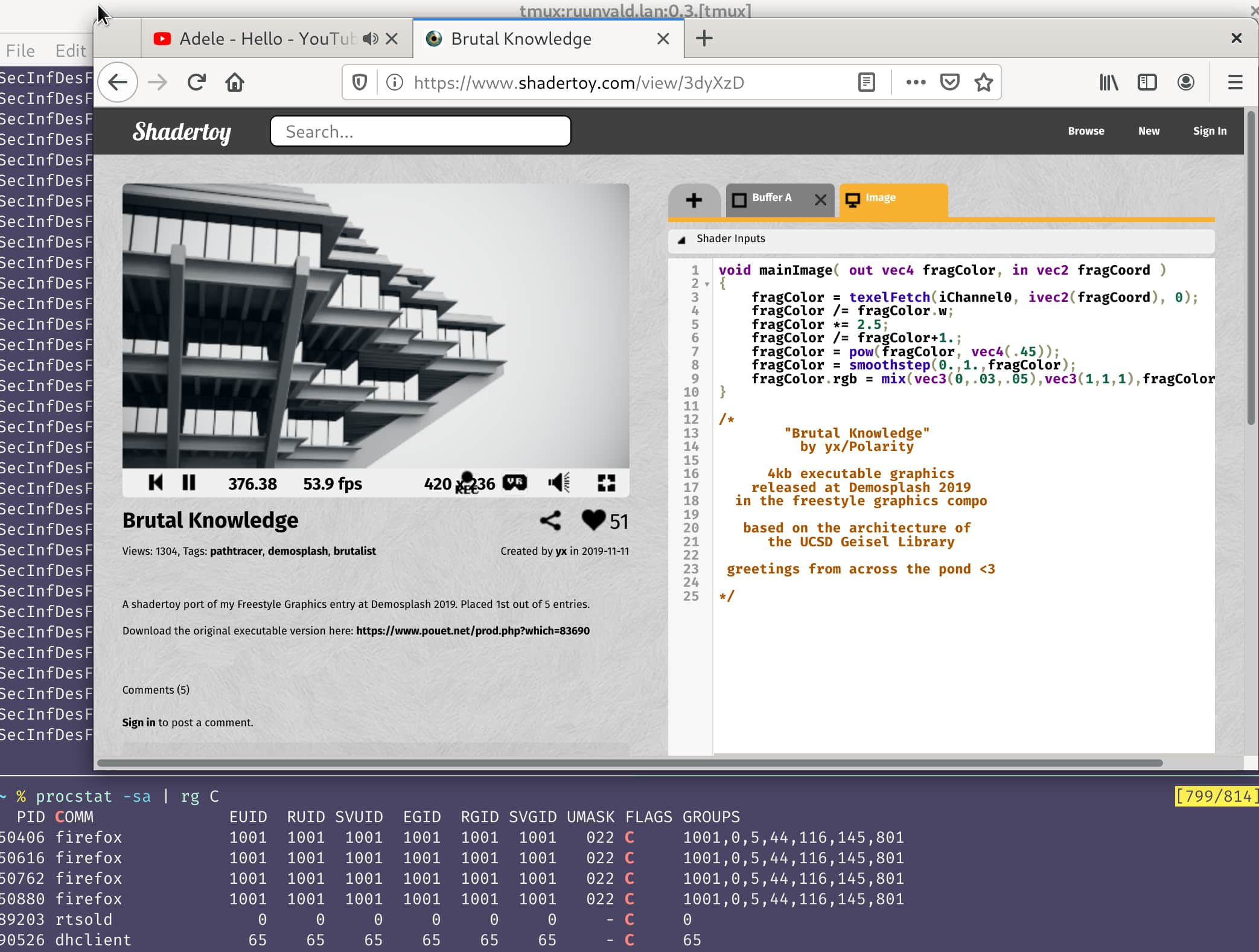Happy new year! Since I haven’t been posted in a while, here’s what I’ve been up to lately:
- adopted Wezterm as my terminal emulator, contributing a bunch of (mostly Wayland-related) patches in process
- figured out a minimal tool to make Xiaomi power strips work without the “cloud”
- saw a SIMD-accelerated
tacline-reversing utility and immediately ported it to arm64 NEON/AdvSIMD - helped out with firmware and EC (just testing with the latter) patches for the Thinkpad L430/L530
- developed a FreeBSD driver for the SPI keyboard/touchpad attachment in Apple MacBooks (currently only in my fork and only tested on the 2015 MBP, spibus-side prerequisites are in review)
- related: got the Magic Trackpad 2 (which uses a compact packet format but similar surroundings to bcm5974) working too
- started learning PCB design with Horizon EDA
- which has of course resulted in making some new tools for it
- found bugs in the mold linker and zlib-ng
- made new Wayfire plugins: wf-globalgestures, wf-dynspaces, wf-touchpad-gesture-drag (yeah, turns out 3-finger drag is easy with current libinput: it’s a hold-cancel-swipe sequence!)
- finally made a freebsd-embedded-hal Rust crate
- just now added dark mode to micro-panel where I’m writing this
Unusually, I do have a legit new year’s resolution this time: I should blog more! Want to publish some long-form things here.
